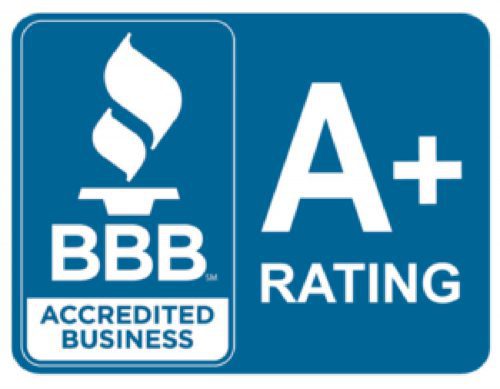Neonatal Hypoxia
Neonatal hypoxia occurs when a baby does not receive enough oxygen to their brain before a mother gives birth, during labor, or after delivery. It can result in brain injury and could lead to a permanent disorder such as hypoxic-ischemic encephalopathy (HIE), cerebral palsy, and developmental delays. A baby that is born prematurely may have hypoxia because their lungs are not developed enough and they can’t breathe on their own.
The word hypoxia means low oxygen levels (anoxia would be a lack of oxygen altogether). If a baby has stopped breathing for a minute or so then they may have hypoxia, but if they stop breathing for about five minutes then they likely have anoxia. If they stop breathing for longer than six minutes, then they are medically brain dead.
When hypoxia occurs, the brain starts malfunctioning rapidly and in an emergency capacity. This can result in seizures since there are too many electric signals going on at once.
The longer that it takes to treat neonatal hypoxia, the higher the chances will be that it could lead to permanent disabilities. Many different factors can cause hypoxia including oxygen deprivation, cardiovascular collapse, umbilical cord injuries, placental insufficiency, infection, umbilical cord prolapse, shoulder dystocia, brain blood vessel abnormality, and congenital heart disease.
Symptoms of Neonatal Hypoxia
There are some symptoms that may arise if your baby has neonatal hypoxia. They include:
- Weakened limbs
- Jerky or spastic motions
- Decline in executive functions
- Unconsciousness
A doctor will be able to diagnose a baby with hypoxia and then start them on a treatment plan.
Treatment for Neonatal Hypoxia
If a baby has neonatal hypoxia, then they will need immediate medical attention, such as:
- Resuscitation
- Stabilization of oxygen flow
- Cooling therapy, where the baby’s body temperature will be cooled a few degrees below the normal temperature for three days to diminish the effects of the brain injury
- Fluid management
- Making sure there is adequate ventilation
If a baby sustains permanent injuries due to brain damage, then further treatment may be needed in the short- and long-term, including:
- Physical therapy to improve physical health
- Occupational therapy to help with day-to-day responsibilities and tasks
- Medications like anticonvulsants, muscle relaxants, and sedatives
- Surgeries as needed
Injuries can last a lifetime. A family may need to ensure their child has medical equipment like wheelchairs and crutches to get around, and they might have to outfit their house with medical devices as well as hire a caregiver to assist them.
How Do I Know if Medical Malpractice Caused Neonatal Hypoxia?
Proving medical malpractice is always challenging. But if your doctor engaged in any of these behaviors, they may have been acting out of negligence during your pregnancy, while you were giving birth, and/or after labor.
- They did not detect a prolapsed umbilical cord, loss of oxygen, infection, or other issues that lead to neonatal hypoxia
- They not did monitor changes in the fetal heart rate monitor
- Even though you had a high-risk pregnancy, they did not schedule a C-section or discuss a treatment plan for you
- They directed you to do a vaginal delivery when you needed to have a C-section
- They delayed a C-section
- They did not use their delivery tools properly and perhaps exerted excessive force
A number of issues could have caused your baby’s condition. Sometimes neonatal hypoxia is preventable with the proper care, but other times, it happens and there is nothing a medical professional can do anything about it.
With the right lawyer on your side, you can determine if medical malpractice caused neonatal hypoxia in your baby.
How Much Will I Receive From a Neonatal Hypoxia Settlement?
If you are able to successfully prove that your doctor was negligent, then you could win damages for things like:
- Medical bills
- Loss of companionship and enjoyment of life
- Pain and suffering
- Future medical care
- Loss of earning capacity
Your birth injury lawyer will calculate the total amount of your noneconomic and economic damages and then propose a settlement to the defendant (the doctor) so you can both avoid having to go to court. However, if it comes to it, your lawyer would be happy to go to court for you.
Your total damages will reflect high how your bills will be and what you and your baby are going to lose out on because of their injury. For instance, if they need lifelong care, that will diminish their capacity to function in everyday life and go into any line of work they want. It will also cause you emotional distress and pain. Your lawyer won’t be able to predict how much you’ll settle for, but they will do their best to procure the highest settlement offer possible.
Settlement Offers in a Neonatal Hypoxia Case
When you get in touch with your birth injury lawyer, it’s important to hand over any and all evidence that you have to prove that negligence did happen. This includes medical records, photographs of injuries, and witness statements.
Proof is critical in medical malpractice cases because you have to show that your doctor had a duty of care, they breached it by being negligent, and that negligence caused injury to you and/or your baby. If you don’t have strong enough evidence, your case could get thrown out before it even goes anywhere. It’s tough to sue doctors on the basis of medical malpractice because the legal system doesn’t want to encourage everyone to sue their doctors all the time. That could be very harmful to the medical profession. With a lawyer in your corner, you will have a much better chance at getting the settlement you need.
Why Contact a Birth Injury Lawyer?
An experienced birth injury lawyer will know what kind of evidence you need as well as collect further evidence if it’s required in order to prove your case. They can negotiate with the defendant, which takes time and energy. You need to focus on caring for your baby and yourself right now instead of getting into a legal battle. You can relax, let your lawyer do the work, and know that someone is fighting for you.
Neonatal Hypoxia Birth Injury Attorneys
If your baby suffered from neonatal hypoxia and you believe that medical malpractice was at play, then it’s time to find a birth injury attorney who will pursue a settlement for you. Gilman & Bedigian is here for you and ready to get started on your case ASAP.
Contact Gilman & Bedigian 24/7 for a free consultation at (800) 529-6162.











